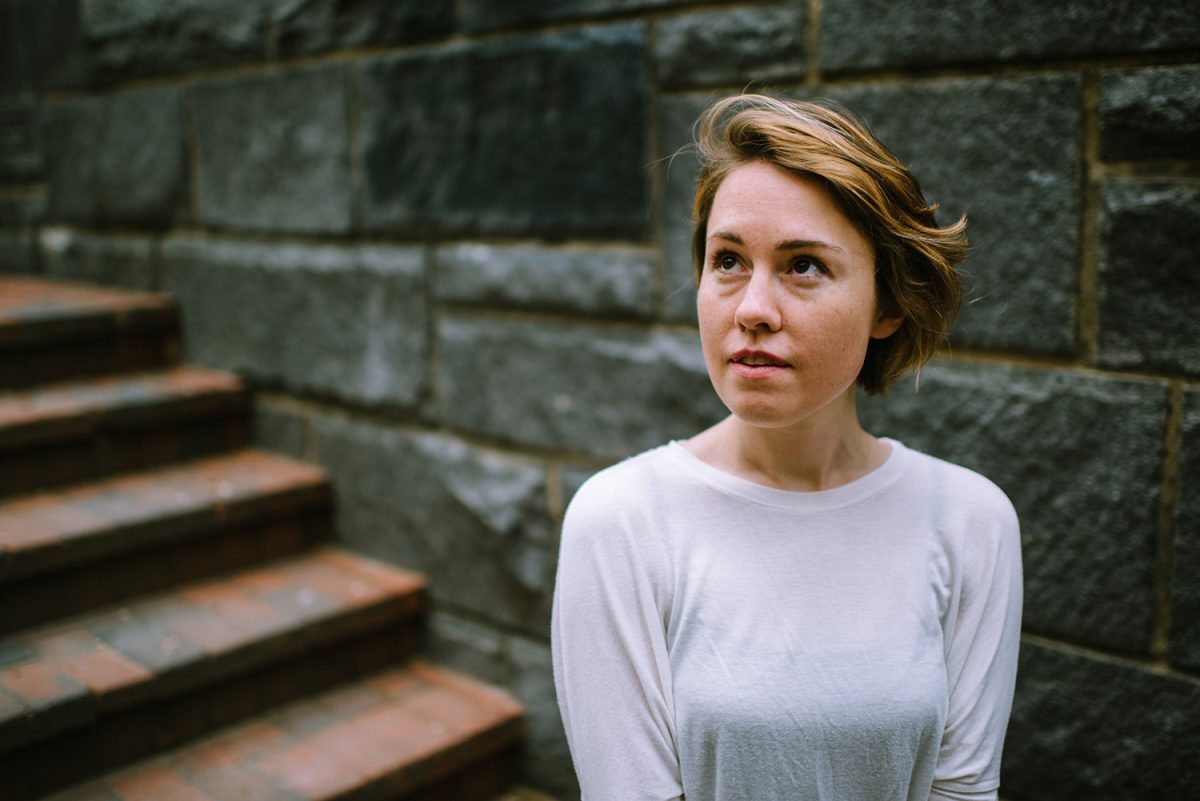When I entered the University of Iowa’s Hancher Auditorium on Sunday evening, I paused at the empty rows, thinking the usher had sent me through the wrong door. As I continued, I saw everyone seated on the stage surrounded by a handful of chairs and music stands.
The 1,800-seat auditorium had somehow transformed into a black box theater. The concert was intimate and organic — the same words I’d use to describe the music of composer Caroline Shaw and the Attacca Quartet.
Shaw was quoted in the program notes, stating that chamber music “is ultimately about conversation without words.” The opening piece, “Blueprint,” was a testament to Shaw’s statement.
It began with two pulsing notes, followed by a brief silence as if to ask the audience, “Are you paying attention?”
The pulse developed further before pausing and returning to the beginning. This cycle progressed until it devolved into conflict, each instrumental voice differing from the other in pitch and rhythm, but always reuniting eventually.
The Grammy-winning Attacca Quartet is the champion of contemporary repertoire. They embodied the music they played, trembling in time with the staccato plucks of their strings and swaying to the swelling crescendos.
Sitting just feet away from them, I saw the hairs break off cellist Andrew Yee’s bow. Watching her fingers dance along the neck of her instrument, I thought it must hurt to play with such passion.
“The Evergreen” was the fifth piece of the concert. In the program notes, Shaw explains how the inception of this piece came to her on a walk through a Canadian evergreen forest. It was an offering in four movements: “Moss,” “Stem,” “Water,” and “Root.”
The Quartet bounced the tips of their bows during “Moss”, and I could almost feel the lush greenery cover me, soft and heavy. “Stem” soared to proud and sturdy heights. The delicate and scattered plucks around the Quartet created a refreshing visual of nourished vegetation in “Water.”
The final movement, “Root,” was a beautiful but anguished piece, for what Shaw called the “ever-seeking and nourishing and building” roots.
As the piece concluded, violist Nathan Schram paused, bow poised to play the final note for which the audience leaned in and listened.
After a thick silence, Schram dropped his bow, leaving the phrase incomplete. There were tears in the eyes of the audience, the Quartet, and Shaw.
“Other Song” concluded the concert, at which point Shaw asked the audience to hum a single note with her. The Quartet began and Shaw sang, silencing us with the wave of her hand and, as the song concluded, wished us goodnight.
RELATED: Hancher releases breakdown of new season performances
Humming through “Other Song,” the audience held the note even when it clashed with dissonant phrases because they trusted Shaw to lead them to resolution.
Shaw’s music is evocative. The sights, sounds, and feelings she conjures immerse make listeners feel as though they are themselves involved in the music-making.
“[I] always try to make something I want to hear and that I feel,” Shaw said. “I try to be as honest and real and authentic as that, and all that I can hope for is that by writing what [I] know, other people will feel it.”



